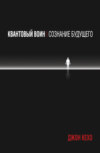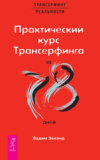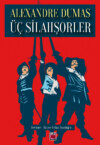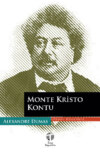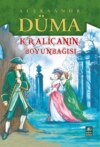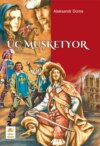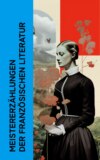Kitabı oku: «The Last Vendée», sayfa 40
XXIII.
WHAT BECAME OF JEAN OULLIER
Though it was next to impossible for the soldiers to discover Jean Oullier in the hiding-place poor Trigaud's herculean strength had made for him, nevertheless, now that Courte-Joie and his companion were dead, Jean Oullier had only exchanged the prison into which the Blues would have thrust him, had he fallen into their hands, for another prison more terrible, a death more awful than any his captors could inflict upon him. He was buried alive; and in this deserted region there was little hope that any human being would hear his cries.
Toward the middle of the night which followed his parting from his two associates, finding they did not return, he felt certain that some fatal event had overtaken them; evidently, they were either dead or prisoners. The mere idea of the position in which he himself was placed was enough to freeze the blood in the veins of the bravest man; but Jean Oullier had one of those strongly religious natures which continue a struggle in faith when the bravest despair. He commended his soul to God in a short but fervent prayer, and then set to work as ardently as he had done in the burning ruins of La Pénissière.
Up to this time he had been crouching, bent double, with his chin on his knees; it was the only position the cramped quarters of the excavation allowed. He now endeavored to change it, and after many efforts he succeeded in getting on his knees. Then bracing himself on his hands and applying his shoulders to the heavy stone, he endeavored to raise it. But that which was child's play to Trigaud was impossible to any other man. Jean Oullier could not even shake the enormous mass which the giant had placed between him and the heavens.
He felt the ground beneath him; it was not earth but rock, – rock to right, rock to left, above and below him, rock only.
The slab of granite which Trigaud had laid like a monstrous cover on the stone box, slanted forward and left an open space about four inches wide between the bed of the rivulet and the imprisoned man, through which the air could reach him.
It was on this side that Jean Oullier, after fully reconnoitring his position, decided to apply his efforts.
He broke the point of his knife against the rock and made a chisel of it. The butt-end of his pistol answered for a hammer, and he set to work to widen the aperture. He spent twenty-four hours at this labor, without other sustenance than that contained in his huntsman's brandy-flask, from which he sipped from time to time some drops of the strengthening liquor it contained. During those twenty-four hours his courage and force of will did not desert him for a single instant.
At last, on the evening of the second day, he succeeded in passing his head through the aperture he had cut in the base of his prison; before long his shoulders could follow his head; and then, clasping the rock and making a vigorous effort, he drew out the rest of his body.
It was indeed high time that he did so; his strength was exhausted. He rose to his knees, then to his feet, and attempted to walk. But his injured ankle had swelled to such a frightful extent during the thirty-six hours he had spent in that horribly constrained position that at the first step he took all the nerves of his body quivered as if they were wrung. He uttered a cry and fell gasping on the heather, mastered at last by the terrible pain.
Night was coming on. Listen as he might, Jean Oullier could hear no sound. The thought came to him that this night, now beginning to wrap the world in its shadows, would be his last. Again he commended his soul to God, praying him to watch over the two children he had loved so well, and who, but for him, would long ago have been orphaned through their father's indifference. Then, determined to neglect no chances, he dragged himself by his hands, or rather crept, in the direction where the sun had set, which he knew to be that of the nearest dwellings.
He had gone in this way nearly a mile when he reached a little hill, whence he could see the lights in a few lonely houses scattered on the moor. Each of them was to him a pharos, beckoning to life and safety; but, in spite of all his courage, his strength now deserted him and he could do no more. It was sixty hours since he had eaten anything. The stumps of the brambles and the gorse, cut down in the haying season and sharpened by the scythe, had torn his hands and chest, and loss of blood from these wounds still further weakened him.
He allowed himself to roll into a ditch by the wayside; determined to go no farther, but to die there. Intense thirst possessed him, and he drank a little water which was stagnant in the ditch. He was so weak that his hand could scarcely reach his mouth; his head seemed absolutely empty. From time to time he fancied he heard in his brain a dull, lugubrious roar, like that of the sea making a breach over a ship and about to engulf it; a sort of veil seemed to spread before his eyes, and behind that veil coursed myriads of sparks, which died away and sparkled again like phosphorescent gleams.
The unfortunate man felt that this was death. He tried to shout, not caring whether enemies or friends came to his relief; but his voice died away in his throat, and he scarcely heard himself the hoarse cry which he managed to emit.
Thus he remained for over an hour, in a dying condition. Then, little by little, the veil before his eyes thickened and took prismatic tints; the humming in his brain had strange modulations, and for a time he lost consciousness of all about him.
But his powerful being could not be annihilated without a further struggle; the lethargic stillness in which he remained for some time allowed the heart to regulate its pulses, the blood to circulate less feverishly. The torpor in which he now lay did not lessen the acuteness of his senses. Presently he heard a sound which his huntsman's ear did not mistake for a single instant. A step was coming across the heather, and that step he knew to be a woman's.
That woman could save him! Torpid as he was, Jean Oullier understood it. But when he tried to call or make a movement to attract her attention he was like a man in a trance, who sees the preparations for his funeral and is unable to arrest them; he perceived with terror that nothing remained of him but his intelligence, and that his body, completely paralyzed, refused to obey him. As the hapless being nailed in his coffin makes frantic efforts to burst the iron barrier which parts him from the world, so Jean Oullier strained at every spring which Nature puts at the service of man's will to conquer matter. In vain.
And yet, the steps were coming nearer; each minute, each second made them more distinct, more unmistakable to his ear. He fancied that every pebble they displaced rolled to his heart; his agony from the multiplicity of his abortive efforts grew intense; his hair rose on his head; an icy sweat stood on his brow. It was worse and more cruel than death itself, for death feels nothing.
The woman passed.
Jean Oullier heard the thorns on the briers catch and scrape her dress as if even they wished to stop her; he saw her shadow lying dark upon the bushes; then she passed away, and the sound of her steps was lost in the sighing of the wind among the reeds.
The unfortunate man believed he was doomed; and the moment hope abandoned him the awful struggle he had fought against himself came to an end. He recovered calmness and mentally prayed to God, commending his soul to Him.
This prayer so absorbed him that it was not until he heard the noisy breathing of a dog, which passed its head through the bushes scenting an emanation, that he noticed the coming of an animal. He turned, with an effort, not his head, that was impossible, but his eyes in the direction of the creature, and there saw a cur gazing at him with frightened but intelligent eyes.
Catching Jean Oullier's gaze the animal retreated to a little distance and began to bark. At this instant Jean Oullier fancied that he heard the woman calling to her dog; but the creature did not choose to leave its post, continuing to bark. It was a last hope, – a hope that was not balked.
Tired of calling to her dog, and curious to know what excited it, the woman retraced her steps. Chance, or Providence, willed that this woman should be the widow of Pascal Picaut. As she neared the bushes she saw a man; stooping over him she recognized Jean Oullier.
At first she thought him dead; then she saw his eyes, unnaturally wide open, fixed upon her. She laid her hand upon the huntsman's heart and felt it beating; she lifted him to a sitting posture, threw a little water on his face, and poured a few drops through his clenched teeth. Then-as if through contact with a living being he recovered contact with life itself-Jean Oullier felt the enormous weight which lay upon him lightening; warmth returned to his torpid limbs; he felt its glow steal softly to each extremity; tears of gratitude welled from his eyelids and rolled down his sunken cheeks; he caught the woman's hand and carried it to his lips, wetting it with tears.
She, on her side, was greatly moved. Philippist as she was, the good woman highly esteemed the old Chouan.
"Well, well," she said, "don't take on so, my Jean Oullier! It is all natural, what I am doing! I'd do as much for any Christian; and all the more for you, who are a man after God's own heart!"
"That doesn't prevent-" said Jean Oullier.
He could say no more, his breath failed him.
"Doesn't prevent what?" asked the widow.
Oullier made an effort.
"Doesn't prevent-that I owe you my life," he said.
"Oh, nonsense!" exclaimed Marianne.
"It is as I say. Without you, I should have died."
"Without my dog, Jean. You see it isn't me, but the good God you have to thank." Then noticing with horror that he was covered with blood, "Why, you are wounded!" she exclaimed.
"Oh, no, nothing but scratches. My worst trouble is that I have dislocated my ankle; and besides, I haven't eaten anything for nearly three days. It is chiefly weakness that is killing me."
"Good gracious! but see here, I was just carrying dinner to some men who are getting litter for me on the moor. You shall have their soup."
So saying, the widow put down the basket she was carrying, untied the four corners of a cloth in which were several porringers full of soup and bouilli smoking hot. She gave several spoonfuls to Jean Oullier, who felt his strength returning as every mouthful of the warm and succulent broth got down into his stomach.
"Ah!" he said; and he breathed noisily.
A smile of satisfaction crossed the grave, sad face of the widow.
"Now," she said, sitting down opposite to him, "what are you going to do? Of course you know the red-breeches are after you?"
"Alas!" said Jean Oullier; "I have lost all power with my poor leg. It will be months before I can roam the woods as I must to escape a prison. What I had better do," he added with a sigh, "is to get to Maître Jacques; he will give me a corner in some of his burrows, where I can stay till my leg is well."
"But your master? – and his daughters?"
"The marquis won't go back yet awhile to Souday; and he is right."
"What will he do, then?"
"Probably cross the channel with the young ladies."
"That's a pretty idea of yours, Jean Oullier, to go and live among that crew of bandits who follow Maître Jacques! Fine care they'll take of you!"
"They are the only ones who can take me in without being compromised."
"How about me? You forget me, and that isn't nice of you, Jean."
"You?"
"Yes, me!"
"But you forget the ordinance."
"What ordinance?"
"About the penalties incurred by those who harbor Chouans."
"Pooh! my Jean; such orders are not issued for honest folk, but for scoundrels!"
"Besides, you hate Chouans."
"No; it is only brigands I hate, whichever side they are. They were brigands who killed my poor Pascal, and on those brigands I'll avenge his death if I can. But you, Jean Oullier, your cockade, be it white or tricolor, is that of an honest man, and I'll save you."
"But I can't walk a step."
"That's no matter. Even if you could walk, Jean, I'd be afraid to take you to my house by daylight, – not that I fear for myself; but ever since the death of that young man I fear treachery. Get back under those bushes; hide as best you can; wait till dark, and I'll come back with a cart and fetch you. Then, to-morrow, I'll go for the bone-setter at Machecoul; he'll rub his hand over the nerves of your foot, and in three days you'll run like a rabbit."
"Hang it! I know that would be best, but-"
"Wouldn't you do as much for me?"
"You know, Marianne, I'd go through fire and water for you."
"Then don't say another word. I shall be back after dark."
"Thank you; I accept your offer. You may be very sure you are not helping an ungrateful man."
"It is not to get your gratitude I am doing it, Jean Oullier; but to fulfil my duty as an honest woman."
She looked about her.
"What are you looking for?" asked Jean.
"I was thinking if you tried to get farther back among the bushes you would be safer than in this ditch."
"I think it is impossible," said Oullier, showing his ankle, now swelled to the size of a man's head, and his torn hands and face. "Besides, I am not badly off here; you passed close by these bushes and did not suspect they hid a man."
"Yes, but a dog might pass and smell you out, just as mine did. Remember, my Jean, the war is over, and the days of denunciation and vengeance will begin, if they have not already begun."
"Bah!" said Jean Oullier, "we must leave something for the good God to do."
The widow was no less of a believer than the old Chouan. She gave him a piece of bread, cut an armful of ferns with which she made him a bed, and then, after carefully raising the branches of the briers and brambles about him, and satisfying herself that the eye of no passer would detect him, she departed, exhorting him to patience.
Jean Oullier settled himself as comfortably as he could, offered a fervent thanksgiving to the Lord, munched his bread, and presently went to sleep in that heavy sleep which follows great prostration.
He must have been lying there several hours when the sound of voices woke him. In the species of somnolence which followed the state of torpor he had been in, he fancied he heard the name of his young mistresses; suspicious as all men of his stamp are in the matter of their affections, he fancied some danger must be threatening either Bertha or Mary, and the thought was like a lever, which lifted in a second the torpor of his mind. He rose on his elbow, gently moved the brambles which made a thick rampart before him, and looked through them into the road.
It was dark, but not dark enough to prevent him from seeing the outline of two men who were sitting on a fallen tree on the other side of the road.
"Why didn't you continue to follow her, as you recognized her?" said one of them whom, from his strong German accent, Jean Oullier judged to be a stranger in these regions.
"Ha! damn it!" said the other. "She-wolf as she is, I never thought her so wily; but she gave me the slip, fool that I was."
"You might have been certain that the one we were after was in that group of peasant-women, and that Mary de Souday only stayed behind to meet and detain you."
"As for that, you are right enough; for when I asked that same group of women where the young girl was they said that she and her companion had lagged behind and left them on the road."
"What did you do then?"
"Hang it! I put up the pony at an inn, and hid myself at the farther end of Pirmile and waited for them."
"In vain, I suppose."
"In vain, – for more than two hours."
"They must have taken a cross-road and entered Nantes by the other bridge."
"Probably."
"It is very unfortunate. Who knows if such a piece of luck will ever happen to you again? Perhaps you may never find her now."
"Oh, yes. I shall. Let me alone for that."
"How will you do it?"
"Oh! – as my neighbor the Marquis de Souday, or my friend Jean Oullier would say-'God wants her soul;' and I have at home just the bloodhound we need for the hunt."
"Bloodhound?"
"Yes, a regular bloodhound. There is something the matter with one of his front paws, but as soon as that is well I'll put a chain round his neck and he'll take us straight in the direction we want to go, without any trouble to us, except taking care he does not pull too hard on the chain and break it in his hurry to get there."
"Come, stop joking; these are serious matters."
"Joking! what do you take me for? Do you suppose I joke in presence of the fifty thousand francs you have promised me? – for you really did say fifty thousand, didn't you?"
"You ought to be sure of it, for you have made me tell you a score of times."
"I know that; but I am never tired of hearing it, any more than I shall be tired of fingering the louis when I get them."
"Deliver us the person we want, and you shall have them."
"Bless me! I hear those yellow-boys chinking in my ears, – dzing! dzing!"
"Meantime, tell me what you mean by a bloodhound."
"Oh! I'd tell you willingly, but-"
"But what?"
"Give and take, you know."
"What do you mean by 'give and take'?"
"Well, as I told you the other day, I wish to oblige the government, partly because I respect it, and partly because I like to harass the nobles and all that belong to them-for I hate 'em all. But, all the same, while obliging the government of my choice, I should be glad to see the color of its money, – for, don't you see, thus far I have given it much more than I receive. Besides, how do I know that if the government lays hold of that person for whom they offer her weight in gold, how do I know, I say, that they will pay what they promised me, or rather promised you?"
"You are a fool."
"I should be a fool if I did not say what I am saying to you now. I like to make myself secure; and if I must speak frankly, I don't see much security in this affair."
"You run the same risks that I do. I have received from an eminent person the promise of one hundred thousand francs if I succeed."
"One hundred thousand francs! That's very little to have come so far to get. Come, own that it is two hundred thousand, and that you give me a quarter of it; because I am on the spot and don't have to travel for the money as you do. Two hundred thousand francs! You are pretty lucky! A good round sum and rings well. So be it, I'll have confidence in the government; but, let me ask, why should I have it in you? How can I be sure you won't slip off with the money when the government pays it? And if you should, where's the court or the judge before whom I could sue you, I'd like to know?"
"My good sir, political associates must trust each other; faith signs their contract."
"Is that why they are so wonderfully well kept? Frankly, I'd prefer another signature."
"Whose?"
"Yours, or that of the minister with whom you are dealing."
"Well, we'll try to satisfy you."
"Hush!"
"What?"
"Don't you hear something?"
"Yes; some one is coming this way. I think I hear the wheels of a cart."
The two men rose at once, and by the light of the moon, which was then shining, Jean Oullier, who had not lost a single word of the conversation, saw their faces. One of the men was a stranger to him; the other proved to be Courtin, – a fact he knew already by the tones of the farmer's voice and the mention he had made of Michel and the "she-wolves."
"Let us go," said the stranger.
"No," replied Courtin; "I've a number of things to say to you. Let us hide in this bush till the cart has gone by, and then we can finish our business."
They walked toward the ditch. Jean knew he was lost; but, unwilling to be caught like a hare on its form, he rose to his knees, and pulled his knife from his belt. It was blunt, to be sure, but in a hand to hand struggle could still be of use. He had no other weapon and supposed the two men to be unarmed. But Courtin, who had seen a man's form rise in the bush and heard the rustle of the reeds and brambles, made three steps backward, seized his gun hidden behind the fallen tree, cocked one barrel, lifted the weapon to his shoulder, and fired. A stifled cry followed the explosion.
"What have you done?" cried the stranger, who seemed to think Courtin's action rather too expeditious.
"See! see!" replied Courtin, trembling and very pale; "a man was watching us."
The stranger went to the bushes and parted the branches.
"Take care! take care!" said Courtin; "if it is a Chouan and he is not quite dead, he'll attack you."
So saying, Courtin, with his other barrel cocked, held himself ready to fire at a safe distance.
"It is a peasant," said the stranger, "but I think he is dead."
So saying, he took Jean Oullier by the arm and dragged him out of the ditch. Courtin, seeing that the man was motionless and apparently dead, ventured to approach.
"Jean Oullier!" he cried out, recognizing the Vendéan, "Jean Oullier! My faith! I never expected to kill a man, but since it was to be, it is a grand thing it was he instead of another. That, I can truly say, deserves to be called a lucky shot."
"Meantime," said the stranger, "here comes the cart."
"Yes, it is at the top of the hill, for the horse is trotting. Come, there's no time to lose; we had better be off. Is he really dead?"
"He seems so."
"Very good; forward then."
The stranger dropped Jean Oullier's arm, and the head fell back upon the ground with the heavy thud of a deadweight.
"Yes, yes, he's dead, sure enough!" said Courtin. Then, not daring to go nearer, he pointed his finger at the body. "There," said he, "that secures us our pay better than any signature; that dead body is worth two hundred thousand francs to us."
"How so?"
"He was the only man who could get that bloodhound I told you about away from me. I thought he was dead. I was mistaken. Now that I know it with my own eyes, we are safe. Forward! forward!"
"Yes, for here comes the cart."
The vehicle was now not a hundred steps from the body. The two men sprang into the bushes and disappeared in the darkness, while the widow Picaut, who was coming for Jean Oullier, alarmed by the shot, ran forward to the place where she had left him.







